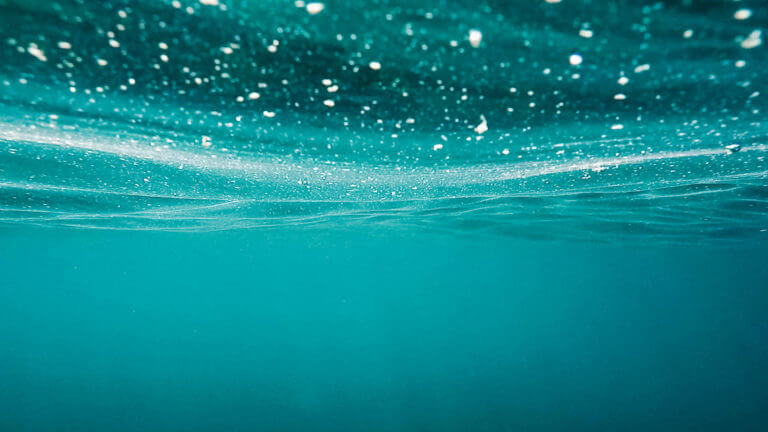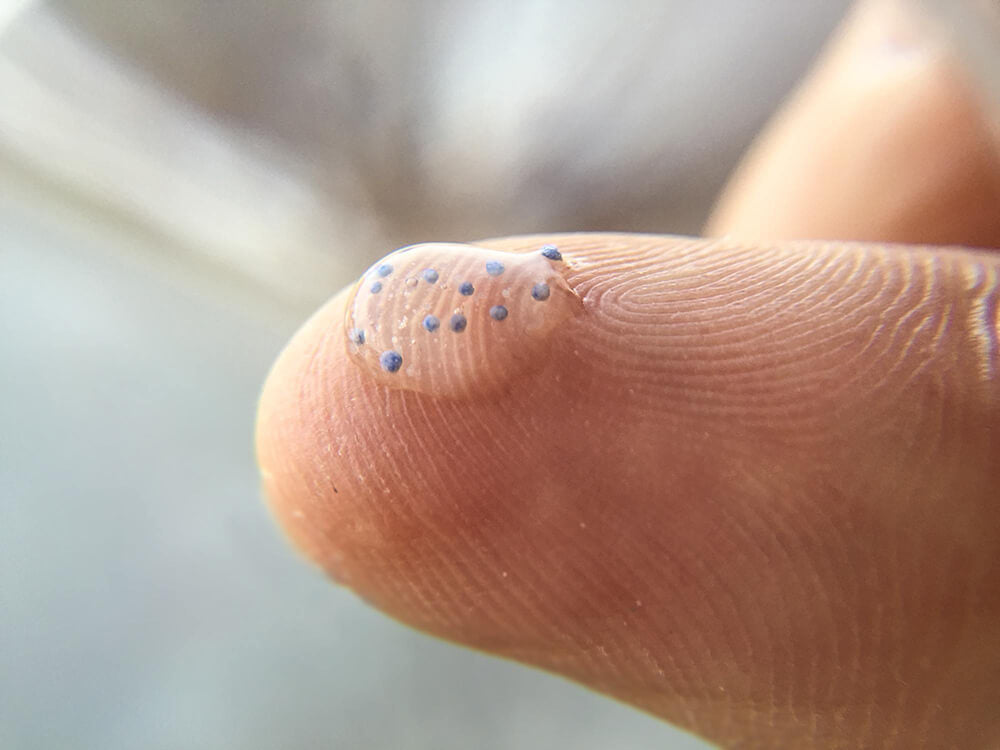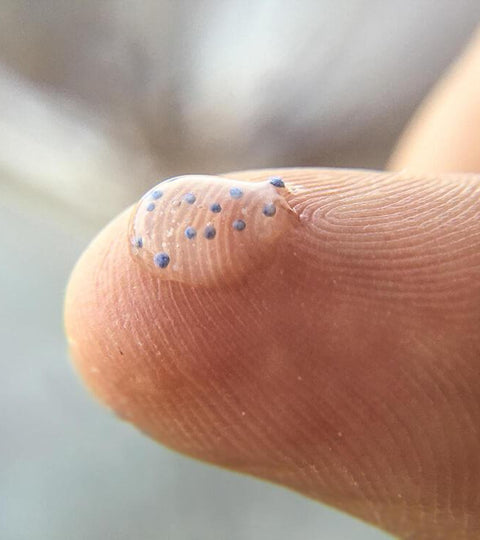Plastic is found in all depths of the ocean and in all sizes, in much larger quantities than you think. Lots of large pieces of plastic threaten the life of countless marine animals, but there’s an ever bigger problem. Microplastics.
Plastic never really breaks down in nature, but it can reduce in size due to sunlight and salt, becoming nearly invisible and thus turning into microplastics or nanoplastics. Microplastics are tiny pieces of plastics smaller than 5mm. Nanoplastics are even smaller, more specifically, they’re 500 times less thick then human hair.

There are microplastics everywhere around us. In the water we drink, the air we breathe, the fish we eat, the make-up we use, … A lot of microplastics come from larger plastic debris that degrades into smaller pieces. But most plastic in the ocean found its way there as a microplastic, coming from fibers from synthetic clothing, paint and car tires.
Over time a plastic bottle can break up into over 10.000 pieces of microplastic.
One of the biggest culprits is cosmetics containing microbeads. Microbeads are tiny pieces of manufactured polyethylene plastic that are added to health and beauty products for thickening, stabilizing and exfoliating purposes. They easily pass water filtration systems due to their size, posing a huge threat to aquatic life and potentially our own health. The use of microbeads has already been banned in countries like the U.K. and Denmark, while the proposed EU legislation will probably be enforced in 2021.
In 2012 the Plastic Soup Foundation started the 'Beat the Microbead' campaign. The goal of this campaign is to prevent the microplastics in our personal care products from entering the environment and our ocean by putting pressure on big cosmetic brands to stop using them in their products.
Another big cause of microplastics entering our waterways are synthetic fibers in our clothing. These tiny particles come off when we put our clothes in the washing machine and ultimately find their way into our oceans. The first country to take action against this, is France. From January 2025, all new washing machines in France must contain a filter to prevent synthetics from entering our waterways. This makes France the first country in the world to take legal measures in the fight against pollution by plastic microfibers.

How much plastic enters our body? How harmful is it? We simply don’t know yet. We do know that the smallest pieces of plastic are able to penetrate cell membranes and other tissues. This way microplastics can absorb pollutants, possibly disrupting our hormonal and immune system, or even leading to cancer.

